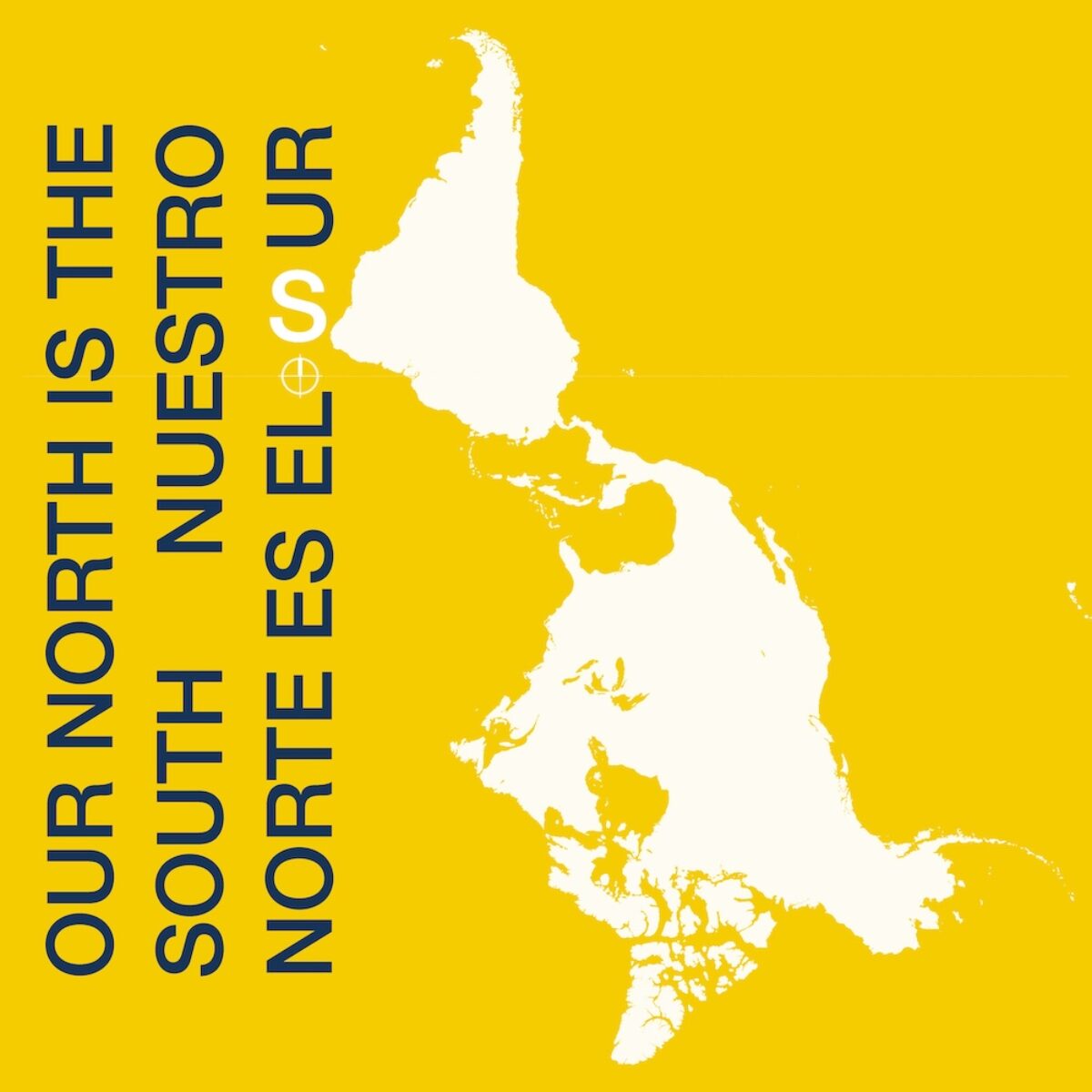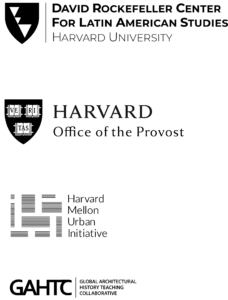Our North is the South: Thinking Architectural History From the South

Event Description
In 1935, Uruguayan artist Joaquín Torres-García reversed the map of South America to argue for the point of view of artists working “from the south,” claiming: “Our north is the south.” Thinking with Torres-García, this gathering of academics thinks about the history of architecture and cities from the point of view of the South and Latin America. Our North is the South (Nuestro Norte es el Sur) is a group of architecture and urban historians working and teaching on Latin America, first convened in Quito in 2018 and with periodical meetings since. This conference builds on a series of teaching lectures produced collaboratively by members of the group for the Global Architectural History Teaching Collaborative (GAHTC), but turns to our work as historians and researchers, invested in local histories and their global scope.
Researching the history of buildings, landscapes, and cities in Latin America presents opportunities and challenges for a transnational approach. From the first inhabitants of the Americas to the contemporary work of historicizing our present, we propose the architecture of the region has always been interconnected. However, understanding the scope of its transnational character has been limited by nationalist ideologies, extended periods of political isolation, and lack of resources. Recent research has addressed these challenges by questioning narratives centered on power and privilege, and turned to the networks that come together in the production of the built environment: the politics of memory and institutions in the preservation of cities and landscapes, the intersection of race and labor in territorial extraction, the role of gender and class in the production of inequality, and the formation of the design disciplines.
What can Latin America contribute to a more global understanding of the processes of our discipline, and what is the contribution of thinking the history of architecture from the South as both a geographic and conceptual position?
Please note: The content of this event will be spoken primarily in Spanish. Machine translation to English will be displayed on-screen in Piper Auditorium. Machine translation to English and Portuguese is also available at this link. Use the “Languages” drop-down menu to select a language.
Program
Friday, December 1, 2023
Preservation Dilemmas
9:00am – 10:30am
Introduction
José Carlos Fernández (Harvard GSD)
The traditional landscape of the Azuero region in Panama (16th century onwards)
Silvia Arroyo (Universidad de Panamá)
El Vedado: Memorialization and Conservation Strategies
Claudia Felipe Torres (Universidad de La Habana/UNESCO)
El Panecillo: World Heritage and 1970s Baroque
Cristina Bueno (Universidad San Francisco de Quito)
Think twice: 20th-century heritage valuation criteria through the case of Colombia
María del Pilar Sánchez Beltrán (Universidad Nacional de Colombia)
Respondent: Ana Esteban Maluenda (ETSAM)
Race, Labor, and Territorial Extraction
10:45am – 12:15pm
Introduction
Catarina Flaksman (Harvard HAA)
Unearthing Histories: The Intersection of Race and Labor in Colonial Andean Architecture
Francisco Mamani Fuentes (Thoma Foundation)
The Pan-American Highway: From extraction to exploitation
Reina Loredo Cansino (Universidad Autónoma de Querétaro)
From Oil to Food: Fantasies of Abundance and Nelson Rockefeller’s Architectures of Development in Venezuela, 1940s–1960s
Fabiola López Durán (Rice University)
Cultural Urbanism, Symbolic Gentrification, and Labor in the Peripheries of São Paulo, 1980–2020
Daniela Sandler (University at Buffalo)
Respondent: Bruno Carvalho (Mahindra, RLL, AAAS)
Gender and Class in the Built Environment
1:15pm – 2:45pm
Introduction
Carolina Sepulveda (Harvard GSD)
Dolores Veintimilla’s Necrology: Experience, Public Space and the Death Penalty Debate in Ecuador
Christian Parreño (Universidad San Francisco de Quito)
Popular tourism, working class and women: “Balnearios Populares” in Chile 1971-1973
Macarena Cortés (Pontificia Universidad Católica de Chile)
Architects’ Perceptions of Professional Regression and Gender Inequality in Pinochet’s Chile
Amarí Peliowski (Universidad de Chile)
Family Housing & Feminized Bodies: Dragging Domestic Space, examples from Mexico
Diana Maldonado (Universidad Autónoma de Nuevo León)
Respondent: Valentina Rozas-Krause (2023–24 Radcliffe Fellow and Universidad Adolfo Ibáñez)
Rethinking Pedagogies
3:00pm – 4:30pm
Introduction
Yazmín Crespo Claudio (Harvard GSD)
Lucio Costa and the Cidade Universitária do Brasil
Leandro Manenti (U Federal do Rio Grande do Sul)
Reverberated Bauhaus: an experience from / towards singular pedagogies
Ingrid Quintana-Guerrero (Universidad de los Andes Colombia)
No commitment: Addressing architectural Education in Peru
Sharif Kahatt (Pontificia Universidad Católica del Perú / Arquitectura PUCP)
Education as the Center
Jorge Nudelman (UDELAR)
Respondent: Patricio del Real (Harvard HAA)
Closing Remarks and Conversation
4:45 pm – 5:45 pm
Closing remarks by Fernando Luiz Lara (University of Pennsylvania) and round table conversation between Lara, José Carlos Fernandez (Harvard GSD), Yazmín Crespo Claudio (Harvard GSD), Catarina Flaksman (Harvard HAA) and Carolina Sepulveda, (Harvard GSD)
Saturday, December 2, 2023
Teacher-to-teacher workshop on research and pedagogy (closed)
Full Program and Participant Bios Available at this link
Our North is the South is convened and organized by Ana María León (Harvard GSD) and Fernando Luis Martínez Nespral (FADU–UBA)
The conference is made possible thanks to the generous funding of the David Rockefeller Center for Latin American Studies, the Harvard University Office of the Provost, the Harvard University Mellon Initiative, and the Global Architectural History Teaching Collaborative.

Anyone requiring accessibility accommodations should contact the Public Programs Office at (617) 496-2414 or [email protected].
#GSDEVENTS